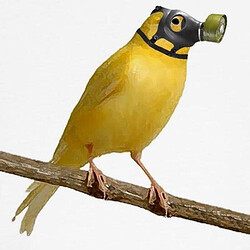Well the perceived physiological intensity of the stimulus for this statement, is based on how much subconscious FEAR you have.
Which is 100% BAD. So if you are to ignore the Causation then you are automatically concluding that High Sensitivity is and can be a BAD thing…
since for this statement FEAR beliefs —> High Sensitivity and the High Sensitivity in this case is an obstacle for the person.
The purpose of these tests is to help people self-identify and learn about themselves… now what would be more conducive to GROWTH and actually helpingsomeone in the right direction?
- You have a fear based belief system limiting your potential, here are the tools to become better…
or
- You’re highly sensitive
#2 is being focused on instead of actual awareness of causation for “High Sensitivity” (sensitivity within the context of FEAR which at that point just means you have bad belief systems)
and now what happens is there’s less emphasis of FEAR beliefs (the real issue) due to being under the label of High Sensitivity, and resultantly a normalization of those FEAR beliefs because it’s tied down to a neutral label like “Highly Sensitive person”
and that is why I say that, that specific statement, is more of an indicator of FEAR beliefs than it is an indicator of High Sensitivity, because the former is 10000x more important for the actual purpose of the test, and for the awareness of the individual.
The sensitivity is too contingent on a negative causation to the point that it becomes trivial in comparison, so it’s not realistically appropriate to be used as an indicator
You have to realize the bigger picture of what the point of all of this is and how it trains people to think lol
High Sensitivity with a negative context = Fear Based Beliefs
Low Sensitivity with negative context = Fear Based Beliefs
Calling those things High Sensitivity or Low Sensitivity, just trains people to be ignorant of their issues and less aware that they have an issue, especially when you put emphasis on a label
I’ve seen the result of it countless times lol
A good parallel is the Introvert/Extrovert. Most people who identify as an Introvert are actually harboring deep fears of rejection, expression, low self worth, fear of what other’s think, etc.
If you know how beliefs tie into behavior and if you’re well experienced in patterns of behavior associated with different types of subconscious fear, then you’d easily see that on any Introvert/Extrovert test, the indicators of the Introvert are just manifested behavior of FEAR based belief systems. However, you’ll see people walking around completely ignorant of their FEARS and the work that they need to do, comfortably settled into their normalized identity of an Introvert because “well you know I’m an Introvert and this is how they are”.
Lol






